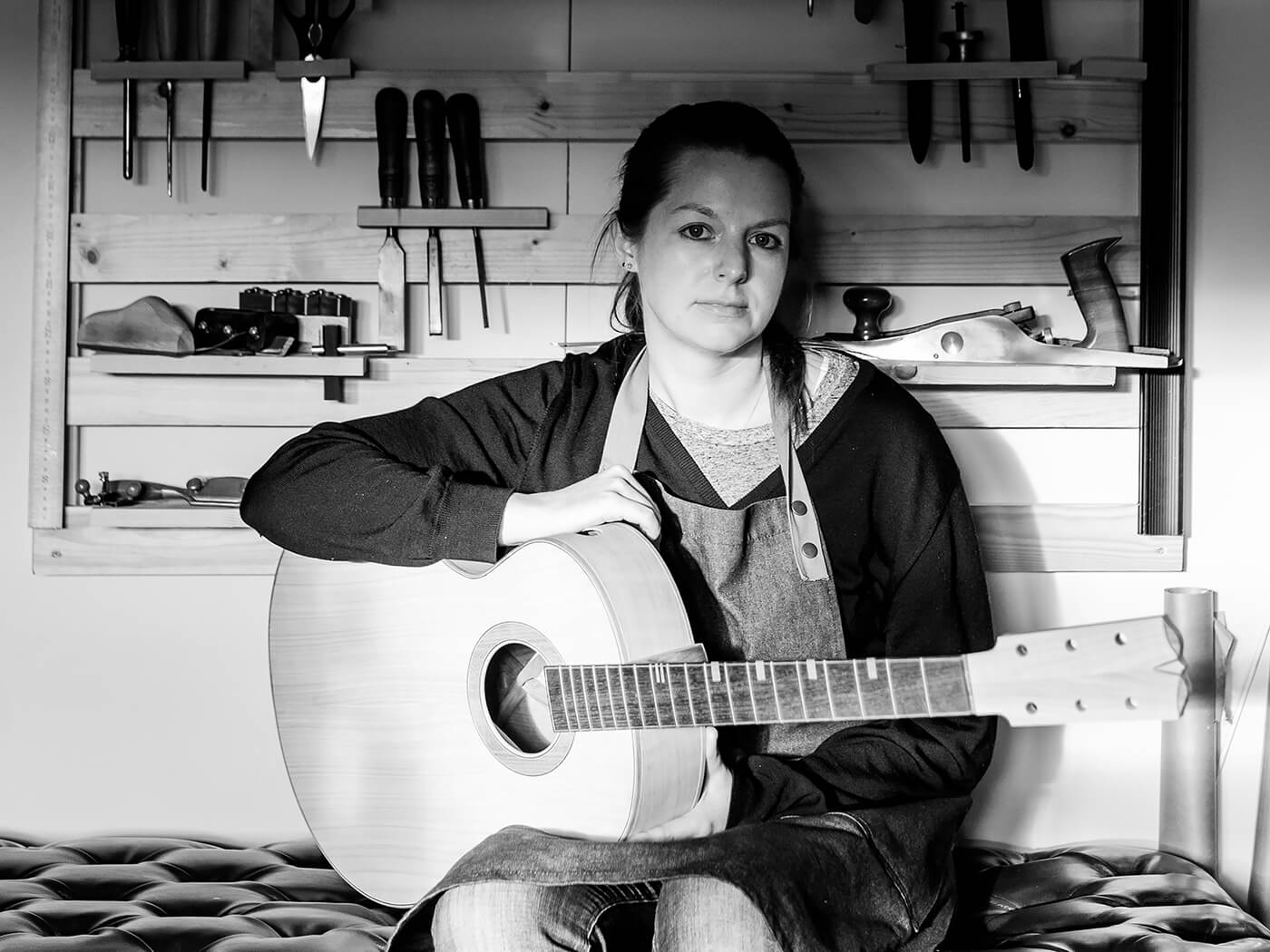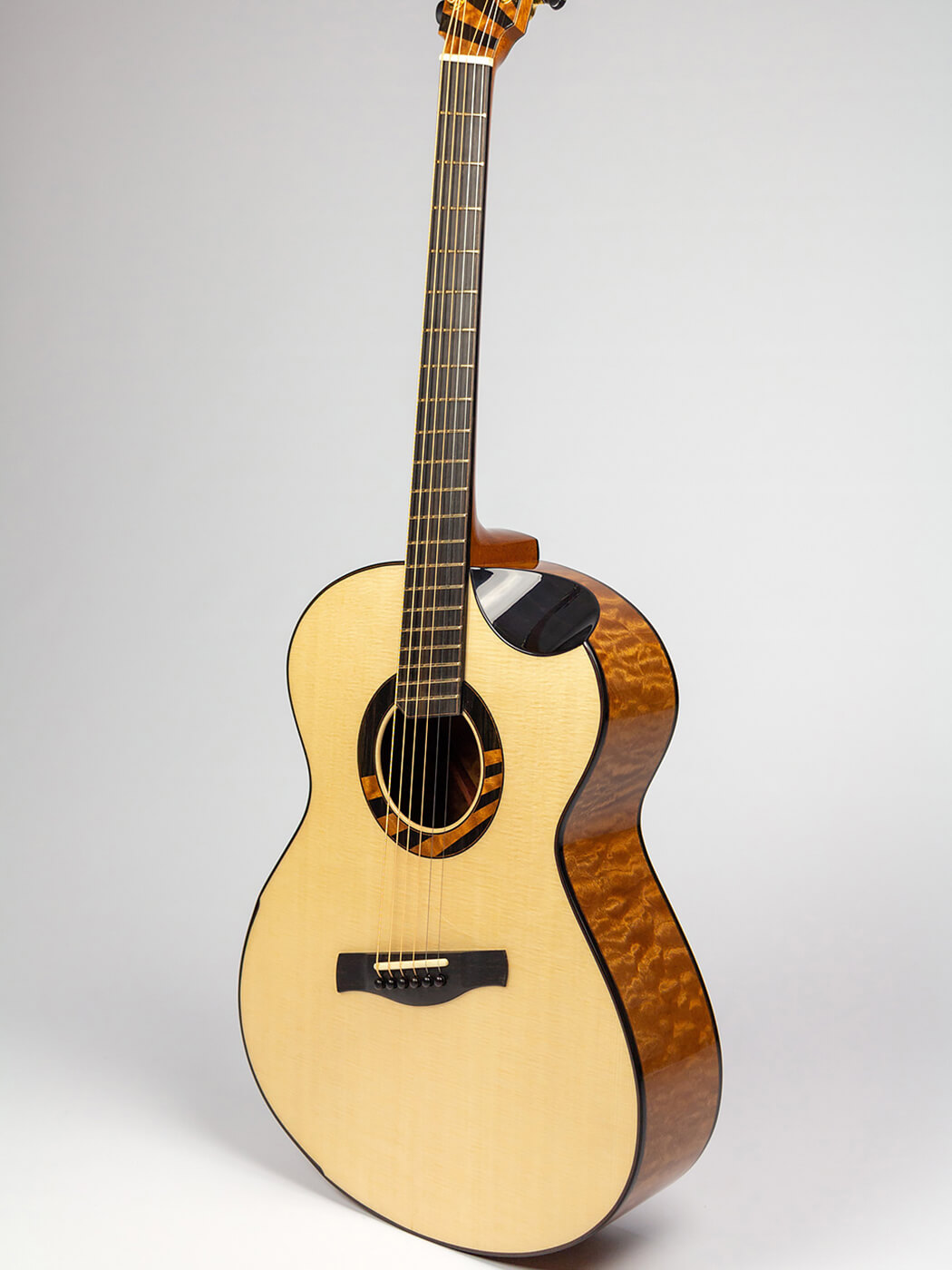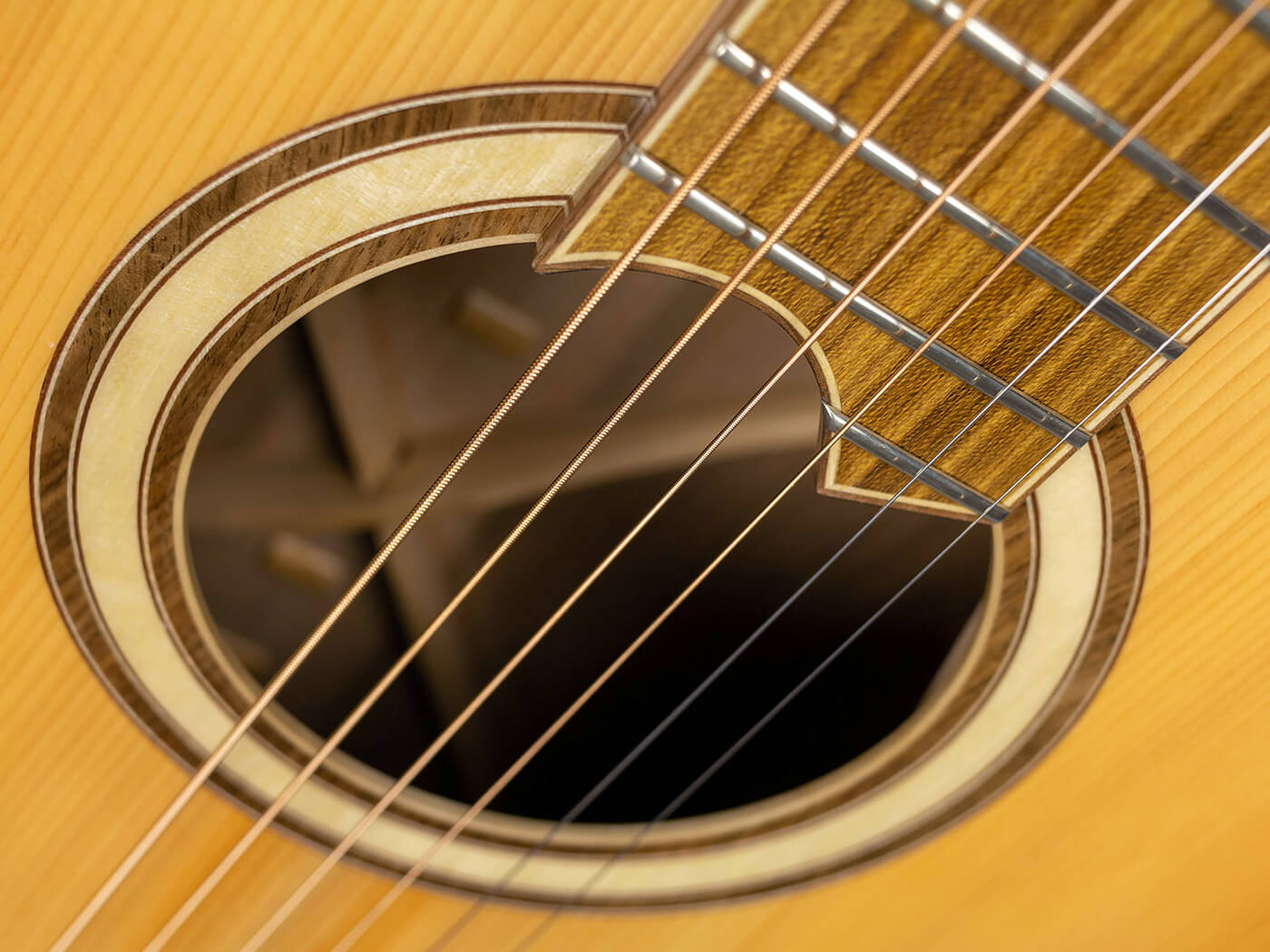Related Tags
“I love seeing the instruments being played for the first time by the customer”: Luthier Rosie Heydenrych of Turnstone Guitars
Rosie Heydenrych left behind a career in the charity sector to set up her small workshop in Surrey, which now specialises in English-grown timber and is building a customer base that includes Tom Quail and Martin Simpson.

How did you get into guitar?
“My sister played the guitar as her school instrument; I actually chose the saxophone! I really struggled with the physical exertion needed for the instrument and one evening I was watching the TV and saw someone relaxing on their porch, playing the acoustic guitar, and it looked so calming compared to the sax! From that moment on I started taking my sisters classical guitar (much to her dismay) and bought a ‘teach yourself’ acoustic guitar book and began playing every day. I didn’t feel like I could ask my parents for proper lessons after the initial investment in all things saxophone!”
When did you start building or tinkering with guitars?
“At the age of 25 I was having a little bit of a ‘quarter-life crisis’ working in the charity sector in London, thinking that although I enjoyed my work, I didn’t think it was something I wanted to do forever. Music had been my active passion during university, playing in my first band, starting to write and perform songs, promoting bands in my free time and hosting a show on the student radio station. My heart just told me I needed to be involved in music in some way – but how!? It just so happened that an evening course in guitar making was advertised at the London Metropolitan University which was just down the road from my day job. If anything, I thought it might be a nice thing to do to feed my creativity whilst working. Very soon into starting it, I knew it was going to become so much more than that.”

What was the moment you realised that you had a viable business?
“During the four years of training I would spend hours dreaming and thinking about my future business. I bought a business plan guidance book and wrote a full plan before I had even finished a guitar. As much as I was able to, I researched my market, my business offer, who my audience might be and how I might find some way or something unique that would help me stand out from the crowd. Without jumping straight in, this gave me a good foresight into how the business was going to work, what my market position would be and how I would go about selling the guitars.”
Did you have any external investment or support starting out?
“Learning to master a craft to deliver it within the context of a business you will make a living from takes quite a serious amount of time. I felt in my position that to seek any type of loan or ‘pay back’ investment at the beginning of my career, not knowing when I would be able to pay it back, was not a smart idea. I grew slowly but surely, investing my acquired income from both my part-time job and commissions into the business. Through my membership with the MIA (Music Industries Association) I explored grants available and have been generously supported and guided by the UK Department of International Trade when it comes to exhibiting and selling abroad. Their support has helped a great deal in attending international events and understanding the export market.”
At what point did you feel like you’d nailed your branding?
“I drew out my first Turnstone logo on a scrap of paper whilst working in my office job. I took a picture of it on my phone so I wouldn’t lose it! I was certainly nowhere near ‘nailing’ it at this stage, but the idea had been buzzing around in my head for a while, incorporating the image of the turnstone bird and the letter ‘T’ into one logo. It just suddenly came out onto that scrap of paper, and it’s the same fundamental design that we use today. My husband and I turned it into a digital logo and then we ran it past a designer who smartened it up. I felt pretty strongly from the outset that this was the logo and the general feel that I wanted, but there was still work to do as far as branding, house colours, and style was concerned. I felt it all started to fall into place when we began to get some kind of consistency on the website and promotional materials, but I feel that it’s always a work in progress. Times change and I need to stay flexible to adapting times. If I think I’ve nailed it, that would suggest that I found the final solution and I don’t want to commit myself to that!”
How did you come up with your best-selling product?
“As we make custom guitars and some stock builds, nothing is ever really exactly the same specification. My first model that I launched was a grand auditorium sized guitar called the TG model, which is probably my most popular size that customers choose, but the other models are gaining in popularity now too. One particular aspect of my building that people are becoming very interested in is my use of English grown timber. From the outset when I was learning I was very concerned about the over-use of endangered timbers in guitar making and wanted to make a concerted effort to trial alternative woods. Being English myself, it made sense that I wanted to explore the woods available on my doorstep. I started by sourcing an English Walnut back and swiftly became so obsessed by the concept of English wood that I made it a primary goal to see if I could build a whole guitar entirely out of English wood – thus creating what is now known as an ‘E-Series’ specification guitar.”
What’s your proudest moment as a maker?
“An initial proud moment when the business first started was getting a letter through the post that was addressed to ‘Turnstone Guitar Company.’ I love seeing the instruments being played for the first time by the customer or being there when they initially open the case to see their new guitar. The music at the end of the day is why I got into this. When customers write to me saying their instruments are bringing them creative joy and musical inspiration, that is ultimately the thing I can be most proud of – that I was involved in that.”
What are the biggest opportunities for the guitar industry?
“For us, being a relatively small enterprise, we are nimble and flexible enough to adapt and move quite quickly on things. During lockdown artists have sadly not been able to get out on the road and do gigs, but they’ve certainly been playing a lot of acoustic live stream sessions on their social media. I think this is a great thing for the acoustic guitar industry – there are new opportunities from this to be explored!”
What’s next for Turnstone Guitars?
“I have been spending most of this year investing in my workshop, building a spray booth and facilities to help me build with greater efficiency. The fruits of that labour are now to come, and I am excited to get going on it and see where the next stage leads us. I am currently building a custom guitar for folk artist Martin Simpson which is also quite exciting. Artist engagement is something that we are excited to plan more into our future as well, so watch this space!”
Find out more about Turnstone Guitars at turnstoneguitar.co.uk.

